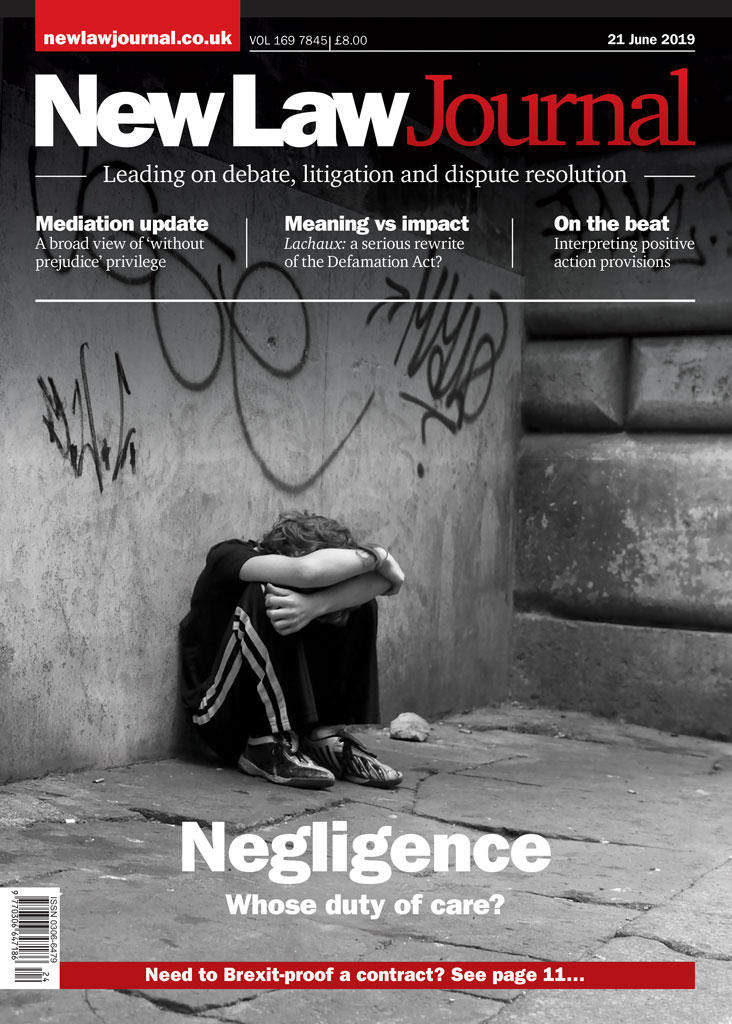
Need to Brexit a contract? Lucy Pert & Adam Jacobs provide a plan
In a boost to free speech & the Fourth Estate the Supreme Court has come off the bench on defamation. Romana Canneti provides the commentary
James Arrowsmith reflects on the possible impact of Poole v GN on defining negligence in the performance of statutory functions
The first employment tribunal ruling on positive action poses problems for employers, says Paul McFarlane
Jennifer Fox discusses a long-awaited decision, providing the latest interpretation of the illegality defence

MOVERS & SHAKERS

NLJ Career Profile: Ken Fowlie, Stowe Family Law
Ken Fowlie, chairman of Stowe Family Law, reflects on more than 30 years in legal services after ‘falling into law’

Gardner Leader—Michelle Morgan & Catherine Morris
Regional law firm expands employment team with partner and senior associate hires

Freeths—Carly Harwood & Tom Newton
Nottinghamtrusts, estates and tax team welcomes two senior associates






